 "Seeing is believing..." But what if you're completely blind?
"Seeing is believing..." But what if you're completely blind?
Sydney Wells (Jessica Alba) adapts to her blindness by sharpening her other senses. Also, her lack of physical sight leads her to develop a sense of intuition that exceeds that of the average, seeing person.
Sydney's situation demonstrates the fact that sight is not always the best way to take in information. Ironically, relying too much on our sight can hinder our ability to see.
Later on, after she receives an eye transplant to restore her sight. Apart from a drastic change, she would have remained blind.
It just so happens that her new eyes are geared to see spiritual realities, such as when and how people left this world, or how they will leave it in the near future. This ability had nothing to do with the physical constitution of her new eyes, it had to do with the spiritual endowments of their previous owner.
This is far-fetched, obviously, but it is true nonetheless that some people can perceive spiritual realities better than others. Developing an appreciation for spiritual truth is feasible, though the origin of such a priority shift is not necessarily explainable, and it certainly does not depend on an individual's physical constitution.
The ability to perceive spiritual realities is extremely handy. Jesus, for example, teaches his followers to live well in the world all the while appreciating the rules of God's kingdom, which are not immediately obvious to the naked eye. Developing our ability to function within God's kingdom, which requires a spiritual emphasis, empowers us to function better in this physical world.
The idea that "seeing is believing" sounds reasonable enough, but we might easily use this statement to excuse or cover up our lack of faith. Often times this statement really means "when God shows up exactly the way I expect Him to, then I will believe."
There is a right way to expect great things from God. If we know God at all and take Him at His word, then we will expect great things from Him, though, if we really know Him, then we will also fear Him with a healthy sort of fear.
If we are convinced that God is God, then we must also be convinced that nothing is too difficult for Him. At the same time, we should keep in mind that, since He is God, then He knows best. So we should expect Him to show up in innumerable, miraculous ways that are consistent with both of these facts.
This is something we can can only learn about through experience, as we wall beside, live with and follow after Jesus. As soon as we open ourselves up to God fully, then we will know and see and experience Him in full as well.
"Have you believed because you have seen me? Blessed are those who have not seen and yet still have believed."
--Jesus to Thomas (John 20:29)


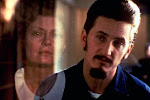


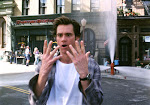

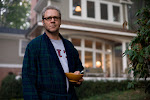
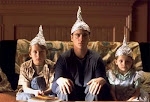

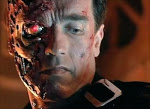







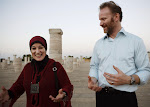


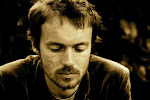


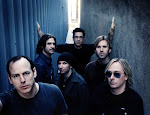
2 comments:
I really enjoyed this post and it has me "thinking" which is a good thing.:) It seems to me that part of believing in God is about truly trusting him. If you really trust in God than you don't need to see him to believe in him.
We can't see many things. If I tell me son or spouse I love them they have to trust that I do. There is no scientific test for love. Maybe it should be "Trusting is believing". Trust is a choice we can make.
Gillian
If we were left with a world without sensory, would we still believe? Is it a question of "belief in God" or a choice to love God, an entity we have not seen with the human eye but have experienced without even realizing it each moment?
Thought provoking post, and thanks for stopping by my blog.
Post a Comment